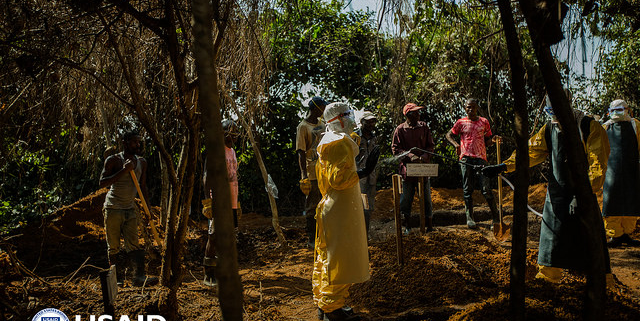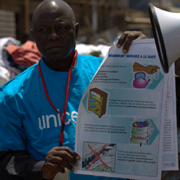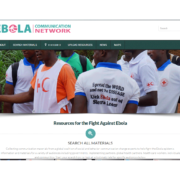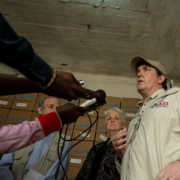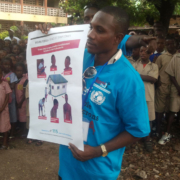The Power of Behavior Change
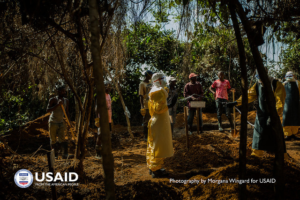 The journal Nature has a special on Ebola, collecting all its reporting on the virus in one place. One of those articles, Models overestimate Ebola cases, is on the failure of mathematical models to accurately predict the epidemic’s course. In an interesting letter responding to that article, the authors credit “altered cultural perception” that allowed for behavior change, changing the course of the epidemic for the better.
The journal Nature has a special on Ebola, collecting all its reporting on the virus in one place. One of those articles, Models overestimate Ebola cases, is on the failure of mathematical models to accurately predict the epidemic’s course. In an interesting letter responding to that article, the authors credit “altered cultural perception” that allowed for behavior change, changing the course of the epidemic for the better.
Below is the text of the response. The letter, along with others from the November 26th issue, can be found here on Nature’s website.
Ebola: the power of behaviour change
Without including social, cultural and behavioural responses to the Ebola epidemic, models may overestimate outbreak size (Nature 515, 18; 2014).
Behavioural response, triggered by an epidemic, can slow down or even stop virus transmission (see et al. Proc. Natl Acad. Sci. USA 106, 6872–6877; 2009). Indeed, altered cultural perception in response to the disease enabled people’s behaviour to change in ways that helped to contain outbreaks in the past (see and Emerg. Infect. Dis. 9, 1242–1248; 2003).
Reports from Foya in Liberia indicate that the outbreak there is now in decline. A local information campaign to change funeral practices and other behaviours seems to have paid off.
More aid and more personnel are urgently needed, but so is the involvement of local communities and the provision of information that can help to contain this epidemic.
Sebastian Funk, Gwenan M. Knight London School of Hygiene & Tropical Medicine, London, UK.
Vincent A. A. Jansen Royal Holloway University of London, Egham, Surrey, UK.

